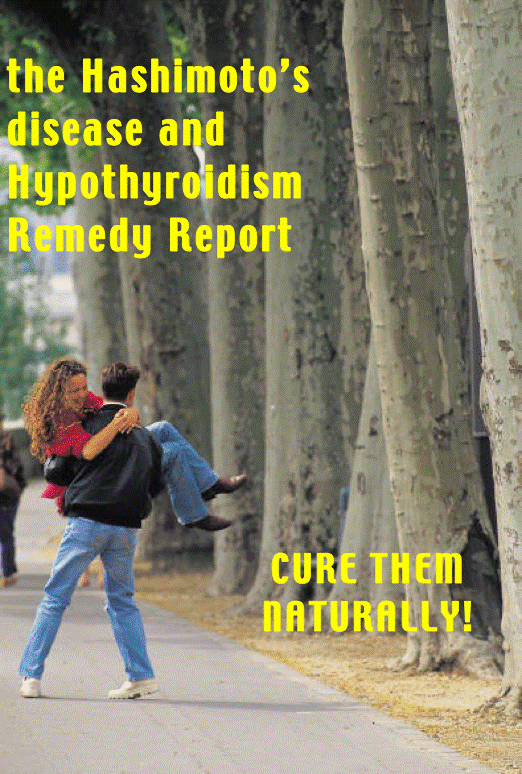
 |
|
| |
In this report, you will learn exactly how to treat and manage the symptoms of your hypothyroidism and Hashimoto's disease using safe, natural and easy home remedies. |
|
If you try these remedies and do not successfully achieve better health, we certainly will refund your purchase price promptly. Simply send an e-mail to [email protected] and let us know. We want to hear from you! If you try these remedies and DO achieve better health, we certainly want to hear about it! We would love to hear your success story! Please e-mail us at [email protected] and share your good news! Also, please let us know if we can share your story with others on our web site, www-thyroid.com. |
| Disclaimer The material in this report is provided for educational and informational purposes only, and is not intended to be a substitute for a healthcare provider's consultation. Please consult your physician or appropriate healthcare provider about the applicability of any opinions or recommendations with respect to your own symptoms or medical conditions. The web site and author shall have neither liability nor responsibility to any person or entity with respect to any loss, damage or injury caused or alleged to be caused, directly or indirectly, by the information contained in this web site or this report. |